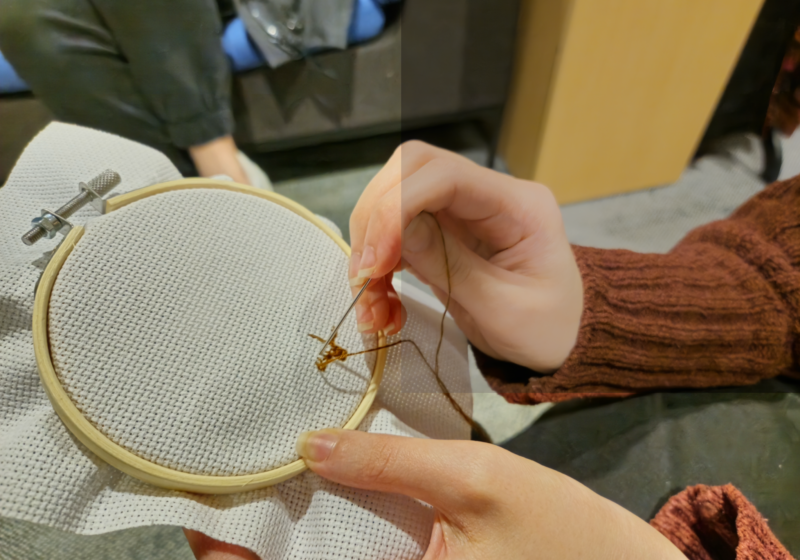
Courtesy of roveracademy.com
While UR maintains its commitment to the residential college feel at least on the undergraduate level, UR’s School of Nursing has embraced the trend of online education and plans to expand online offerings in a model that UR President Joel Seligman praised in his Annual Report to the University community given to the UR Faculty Senate last week.
“Our School of Nursing has been the leader at our University in developing a significant online curriculum,” he said in the address on Tuesday, Sept. 11.
The School of Nursing has been offering online learning for about a decade, beginning with elective courses such as physiology and anatomy — basic courses needed to start a nursing degree. The school currently offers five of these prerequisite courses for a Bachelor of Science degree solely online.
About a year after they started offering these classes, the school began building what are now called “hybrid online degree programs” and now offers two: the Family Psychiatric Mental Health Nurse Practitioner program and the Registered Nurse to Bachelor of Science completion program. The school also offers 44 other hybrid online courses with required in-class and online components. It plans to launch two new hybrid online programs by 2015: a Leadership in Health Care Systems program and a Doctor of Nursing Practice program.
Dean of the School of Nursing Kathy Rideout said that while the prerequisite courses have minimal interaction with faculty and are entirely self-directed, the hybrid online programs are restricted to a small number of students to maintain a high quality of education.
“Faculty and student interaction is critical,” Rideout said, adding that it is also vital to maintain the same rigor in the course when it is taught online, while catering to the need for convenience.
Despite the success of the School of Nursing’s programs — 41 percent of the curriculum is currently offered online and online education provides 26 percent of the School of Nursing tuition revenue — it remains unclear if this model can and will be extrapolated to other schools within the University or if this success might uniquely pertain to the School of Nursing.
“It reflects more our profession of nursing more than our University,” Rideout said.
Before launching the online curriculum, the School of Nursing solicited student feedback and ascertained that students wanted the online curriculum because most work full-time.
“We needed to create a mechanism by which [nursing students] could continue advancing their education,” she said. “We try to make advancing their education as efficient as it can be.”
To create a cohesive plan going forward in the expansion of online learning, the School of Nursing created a new position this year — coordinator of online learning — assumed by Andrew Wolf.
“We started building online programs over time, but there was no central planning,” Wolf said of the motivation behind the position. “It’s important to be coordinated in our efforts and to plan online learning on a program level so there is a consistent look and feel.”
Wolf said that he loves technology and was attracted to the concept of online technology, but when he started teaching online courses, he found it far more difficult than he thought it would be.
“I didn’t understand the planning that is needed,” he said.
He thinks a lot of online learning is not effective, but stressed that the School of Nursing has worked hard to ensure a model of quality analogous to face-to-face instruction. Wolf said that he is unsure how successful it would be to implement online learning on the undergraduate level, stating that the “structure of courses makes online learning hard if professors are busy conducting research.”
Still, Wolf believes that online learning can be used to “empower face-to-face instruction.” A new buzzword in education is the idea of the “flipped classroom,” which entails holding the lecture outside the classroom online and doing the homework in class with the professor, thereby creating a “really dynamic workshop feeling,” Wolf said.
“When professors learn to be online educators, they become better educators in general,” he said.
In his address, Seligman stated that it is “uncertain” how generalizable the School of Nursing’s model and approach to online education is. He also highlighted three core principles in a review of online education conducted by Interim Senior Vice President for Research Rob Clark.
“Any new online education endeavor must be developed in coordination with relevant faculty and schools, online education should have quality on par with in-class courses [and] online education must be financially sustainable.”
He concluded that online education “will be a topic we will discuss further throughout this year” and that “online education has had an augmentative, not disruptive, role, in leading research universities.”
At UR’s professional schools, this topic is indeed being discussed.
Dean of the Warner School of Education Raffaella Borasi said that the school is “very interested in exploring the potential of online teaching and learning” and that a number of faculty and doctoral students are involved in research on the topic.
The school offered a course on “Online Teaching and Learning” for the first time this fall, open to all graduate students, faculty and staff. They have not yet offered online or hybrid courses, but several faculty members are conducting research on the subject, Borasi said.
“As we recognize the significant role that online education is going to play in the future of both K-12 and higher education, we have recently added a focus on online teaching and learning as one of the new components of our strategic plan moving ahead,” she said.
“We continue to look at it very actively given how much the world is changing,” Dean of the Simon School of Business Mark Zupan said.
For the past four years, the Simon School has offered an online elective class in corporate strategy for executives around the world that Zupan said has had “very positive” results. The school also plans to launch a four-credit class in negotiations this spring.
Although Zupan said that the Simon School is looking into the model of online learning set forth by the School of Nursing, he believes that the differences in curriculum — notably the fact that classroom discussion is key to graduate business classes — could restrict its dissemination.
He also noted that few other top-ranked graduate business schools have extensively entered into online instruction.
But it seems that the jury is still out. “It’s too early to tell because the technology keeps evolving,” Zupan said.
Buletti is a member of the class of 2013.



